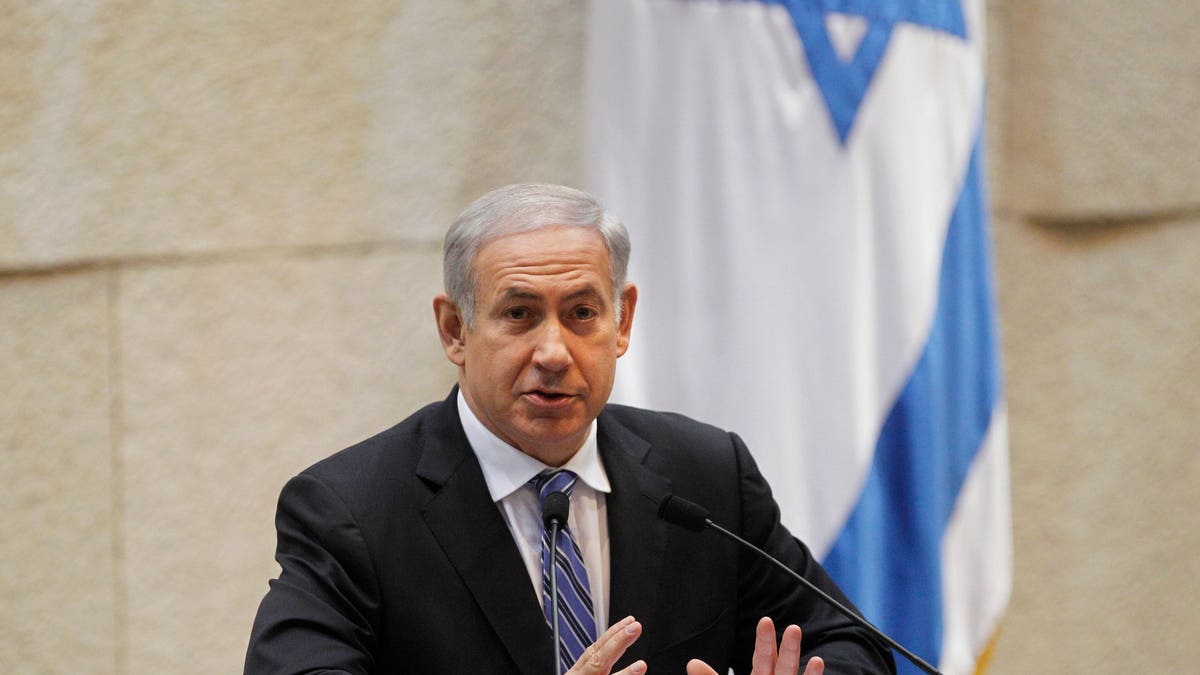
Nov. 2, 2011: Israeli Prime Minister Benjamin Netanyahu talks during a session of the Knesset, Israel's Parliament, in Jerusalem.
Israeli Prime Minister Benjamin Netanyahu is reportedly trying to rally support for an attack on Iran, according to government sources.
Defense Minister Ehud Barak and Foreign Minister Avigdor Lieberman are said to be among those backing a pre-emptive strike to neutralize Iran's nuclear ambitions, Sky News reports.
A "narrow majority" of ministers currently oppose the move, which could lead to retaliation.
In response to reports of an effort to gain cabin approval on Netanyahu's proposal, Lieberman said: "Iran poses the most dangerous threat to world order."
Lieberman added that Israel's military options should not be a matter for public discussion.
In response to Netanyahu's proposal, Iran's military chief warned that an Israeli attack on the Islamic nation's nuclear development sites "will inflict heavy damages," according to the Iranian ISNA news agency.
"The U.S. officials know that the Zionist regime's military attack against Iran will inflict heavy damages to the U.S. seriously, as well as the Zionist regime," said Hassan Firouzabadi, Iran's chairman of the joint chiefs of staff of Iran's armed forces.
Israel successfully test-fired on Wednesday a missile capable of carrying a nuclear warhead and striking Iran. An Israeli defense official told The Associated Press that the military tested a "rocket propulsion system" in an exercise planned long ago. He spoke on condition of anonymity because of security restrictions, and declined to give further information.
Further information about the test was censored by the military. Foreign reports, however, said the military test-fired a long-range Jericho missile -- capable of carrying a nuclear warhead and striking Iran.
Israel considers Iran its most dangerous threat. It cites Tehran's nuclear program, its ballistic missile development, repeated references by the Iranian leader to Israel's destruction and Iran's support for anti-Israel militant groups Hamas and Hezbollah.
Iran, meanwhile, has said its nuclear program is meant only to produce energy for the oil-rich country. It has blamed Israel for disruptions in its nuclear program, including the mysterious assassinations of a string of Iranian nuclear scientists and a computer virus that wiped out some of Iran's nuclear centrifuges.
Israel has repeatedly said that it hopes economic sanctions will persuade Iran to halt its nuclear program. Israeli diplomats have been lobbying the international community for tougher sanctions.
The Associated Press contributed to this report.








































